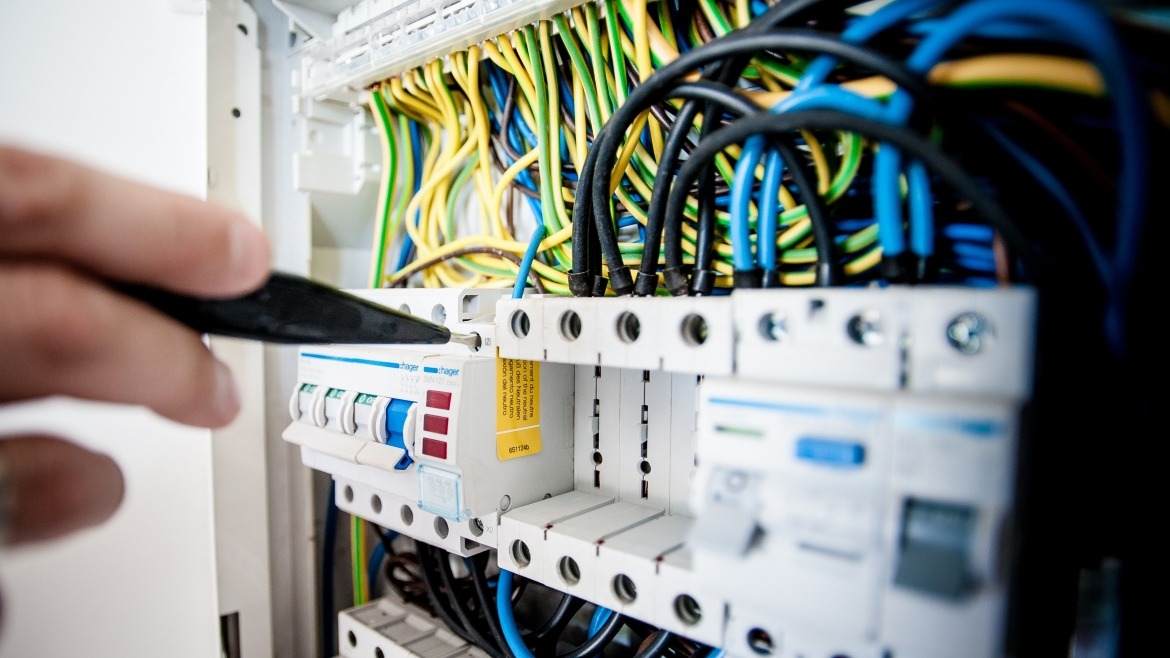Did you know that each year there are hundreds of residential electrical fires across Australia? Here some warning signs from your professional local emergency electrician
Most of us take electricity for granted. When we turn on the television after a long day, we don’t give it a second thought. Electricity is there to serve us 24/7, illuminating our homes, keeping us cool or warm and entertained.
Yet that electric energy is also a potential source of damage. And they leave homeowners with expensive repairs and quite often hospital bills. Don’t let your home be one of them.
Damaged, outdated and poorly installed electrical wiring is not something to be underestimated. Many electrical fire dangers hide behind the walls of your house. However, if you know how to spot the warning signs you can act before you find yourself in real danger. We have rounded up nine ways to spot common electrical issues.
Nine Signs You Need To Call Electrician Near You
Strange or burning smells
When you first install a new appliance it might produce an unfamiliar odour. This is most likely the cause of the appliance’s paint, finish or other superficial aspect. But if you detect a strange smell coming from an electrical outlet unplug the appliance connected to it and get it assessed by an emergency electrician before using it again. The same goes for your breaker panel or fuse box. If either is emitting an unfamiliar odour call the electrician immediately.
And again, if you notice a burning smell this could mean the fire damage has already begun. In that case you will need to contact a professional straight away.
Warm, vibrating or sparking outlets and switches
One way to check for electrical wire damage is to, believe it or not, feel for it. Do not touch any wiring directly but feel your power outlets for vibrations or heat. Appliances themselves generate heat during operation but the outlet itself should never get hot. Note, however, that dimmer switches can become warm as they dissipate the excess energy to create the dimming effect.
If your switches are warm to the touch and especially if an outlet is sparking, unplug any cords and contact an emergency electrician. Your wiring may need repairing or the fixture replaced.
Discolouration, scorching and smoke
Keep an eye on your power outlets for discolouration or scorch marks. This is a good indicator of damaged wiring releasing heat. In this event the heat has already started damaging your home and has the potential to cause an electrical fire if you let it go unchecked.
Flickering lights
While paranormal horror movies might have you thinking that flickering lights is a sign of ghosts, it is more likely to be a power surge. Power surges do not always have to come from a destructive event. It could mean that your appliances are putting too many demands on your electrical system and it cannot handle them.
If the flickering is contained in a single light fixture this could just mean a loose electrical connection, in which case the fix is quite straight-forward.
If the flickering affects multiple lights or rooms, your best bet is to let a licensed electrician handle it.
Broken light switches and loose outlets
If your switches or outlets stop working or work only sporadically this could be a sign of loose wiring, and unfortunately a potential fire hazard. Loose outlets can also create electrical shocks when plugging and unplugging a cord.
Also, if you notice the insides of an outlet move around when you plug a cord into it, the outlet needs to be popped open and fixed. A loose outlet will eventually detach from its wires which leads to sparks and potential fire hazards. A professional can easily and safely fix this problem.
Electrical shocks
While on the subject of faulty outlets and switches, if you touch a metal appliance such as a lamp or ceiling fan and receive a mild but unpleasant shock this could mean that your electrical system is not grounded properly. Electrical shocks occur when you turn an appliance on or off.
While there could be an issue with the appliance itself the problem might be in your wiring. Try plugging another device into the same outlet and if you encounter another shock call an electrician to solve the problem.
Hot ceiling fixtures
Check the area surrounding your ceiling fixtures for warmth. If warm, this could indicate a lack of sufficient insulation. Exceeding globe wattages also causes overheating. Both situations pose a potential fire hazard. Consider switching to LED (light-emitting diode) globes as they do not produce as much heat as incandescent globes do.
Rodent droppings
As you are probably aware, rats and mice love to chew on electrical wiring. Frayed and damaged wiring is a definite fire threat. So, if you see any droppings or other rodent activity signs, check all the wiring in your house for damage. Rodents are likely to gnaw at your wiring until it is bare.
Circuit breaker problems
The reason for having a circuit breaker is that they are designed to trip and shut the power off when overloaded. Tripping prevents overheating and fire hazards. If your circuit breaker trips infrequently this probably indicates just a simple overload. However, if it trips repeatedly you will need a licensed electrician to evaluate your whole electrical system.
Contact Emergency Electrician Near You
So, if you notice any of the above warning signs around your home, contact your emergency electrician straight away. Never attempt to fix or tamper with electrical wiring yourself. Doing so could lead to further damage or a fatal accident. Contact VE Solution’s emergency electrician Northern Beaches to keep your home safe.
Our Services Area:




